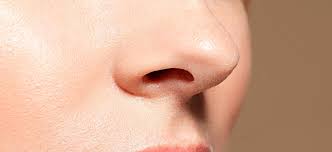Is Rhinoplasty Painful? Managing Discomfort After Surgery
When preparing for a nose reshaping procedure, many people ask, is rhinoplasty painful? Understanding what to expect in terms of discomfort is essential for managing anxiety and ensuring a smooth recovery. Rhinoplasty surgery(جراحة تجميل الأنف), while transformative, involves surgical manipulation of delicate nasal tissues, which can result in varying levels of pain and swelling. This article explores the importance of rhinoplasty, the nature of pain involved, ways to manage discomfort, risks, benefits, frequently asked questions, and concludes with tips for a comfortable recovery.
The Importance of Rhinoplasty Treatment:
Rhinoplasty is a significant surgical intervention that enhances both the appearance and function of the nose. Whether correcting structural issues like breathing problems or refining facial harmony, this procedure can profoundly impact self-esteem and quality of life. Given its importance, patients need to understand the recovery process, especially pain management, to approach surgery with confidence and realistic expectations.
Understanding Pain After Rhinoplasty:
Many wonder, is rhinoplasty painful? The answer varies depending on individual pain tolerance and the extent of the surgery. Common sensations after rhinoplasty include:
- Mild to moderate aching or pressure around the nose and eyes
- Tenderness at incision sites
- Swelling and bruising that can contribute to discomfort
- Nasal congestion, which may cause a feeling of pressure
Typically, the most intense discomfort occurs within the first 48 to 72 hours and gradually diminishes over the following weeks. Severe pain is uncommon due to modern surgical techniques and effective anesthesia.
Managing Discomfort After Surgery:
Effective pain management is crucial for a comfortable recovery. Strategies include:
- Using prescribed pain medications as directed to control discomfort
- Applying cold compresses to reduce swelling and numb the area
- Keeping the head elevated to minimize pressure and promote drainage
- Avoiding strenuous activities that could exacerbate pain or swelling
- Following all post-operative care instructions carefully to prevent complications
Proper pain control not only improves comfort but also supports faster healing.
Risks Related to Pain and Discomfort:
While pain is expected, excessive or prolonged discomfort can indicate complications such as:
- Infection causing increased pain and redness
- Hematoma or bleeding under the skin
- Nerve irritation leading to persistent numbness or pain
- Poor wound healing or excessive scar tissue
Promptly addressing unusual pain with medical guidance reduces risks and improves outcomes.
Benefits of Proper Pain Management:
Controlling pain after Rhinoplasty(تجميل الأنف) offers several benefits:
- Enhances overall comfort and emotional well-being during recovery
- Reduces stress and promotes better sleep quality
- Facilitates adherence to post-operative care routines
- Minimizes swelling and inflammation through proper measures
- Supports quicker return to daily activities and improved healing
These advantages underscore the importance of preparing for and managing post-surgical discomfort effectively.
Frequently Asked Questions About Rhinoplasty Pain:
How long does pain last after rhinoplasty?
Most discomfort lasts about one to two weeks, gradually lessening each day.
Is it normal to have headaches or facial pain?
Mild headaches and facial pressure are common due to swelling and congestion.
Can pain medication be avoided?
Some patients prefer minimal medication, but mild analgesics often improve comfort significantly.
Will the nose feel numb after surgery?
Temporary numbness is typical and usually resolves within weeks to months.
What should I do if pain worsens?
Seek prompt medical advice if pain intensifies or is accompanied by fever or unusual symptoms.
Conclusion:
To answer the question, is rhinoplasty painful? the experience varies but is generally manageable with modern techniques and proper care. Understanding the importance of pain management after surgery is essential for a smooth recovery and overall satisfaction with results. While mild to moderate discomfort is normal, effective strategies can minimize pain, support healing, and improve the recovery experience. With realistic expectations and careful attention to post-operative care, patients can navigate rhinoplasty with confidence and comfort.
